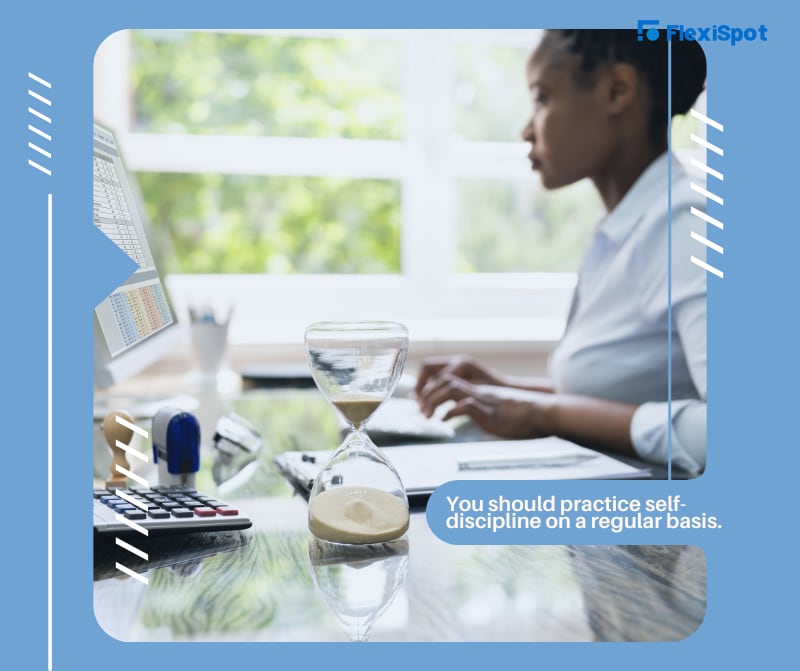We often talk about the importance of motivation for everything we do in life. While it helps a lot to be motivated with whatever we are doing, it’s unavoidable that motivation will sometimes be in low supply. Sometimes, no matter how hard we try, there is none. But when motivation is running low, our bills don’t stop coming and charging us for what we have to pay for the month. We need the money to cover our daily necessities as well. In other words, if you are not made of money or have saved enough to not work a day in your life anymore, there’s no choice but to continue to work, even when unmotivated.
This brings us to the conversation that discipline is much more important than motivation. Once you build the discipline in yourself, you become committed to whatever you are doing that makes finishing your work tasks a lot easier.
You can carry this trait to whatever industry you are working in at the moment or even to a different industry, if ever you decide to jump ship. You need self-discipline to achieve your personal goals and ensure success in your chosen career.

What exactly is self-discipline? According to Indeed.com, it is the “ability to focus on a task or goal with the purpose of achieving a certain result.” You are able to sustain success in your career when you are able to practice self-discipline. It’s not easy to build and it often goes hand in hand with ambition, determination, responsibility, organization, resilience and a work ethic that has been tried and tested to be strong.
You will have that powerful mindset for you to finish your work tasks when they become dragging and repetitive, for you to go through milestones, and then of course, to tick off in your list, the specific goals that you have accomplished.
Self-discipline takes time to build. It’s a behavior that may come natural to a few people but most often than not, it’s learned. We are able to practice self-discipline unconsciously when we’ve built it through the years by repetition. You have to change what you perceive to be your limitations. You think you can’t reach a certain ambition of yours because it’s too big. Challenge your mind and set it to think that you can do things as long as you will do it. You also need to devote your time to activities that will help you shift your attention. It helps to have regular breaks during the work day when you will step out of your workspace and do something that will reinvigorate your energy. And then of course, you have to be comfortable with failing. Even if you weren’t able to accomplish something you’ve been setting your eyes on for the longest time, forgive yourself and accept that it just wasn’t meant to be that time. Someone who is self-disciplined will be able to go past this failure, put his or head up and come back again stronger or doing something different but still moving. These self-disciplined people understand and appreciate what they have learned from a past experience that they don’t really consider a failure as a failure. They still learned something and it’s already time for them to move forward.
Sounds great to be self-disciplined? It’s not easy but there are ways on how you can practice self-discipline. It will help if you do exercises in testing your discipline, doing things repetitively and becoming ultra focused in one of your ventures. You have to start small and it’s when you’re no longer noticing what you’ve been doing that you will shine the most.
We enumerated our tips on how you can develop self-discipline, in whatever industry you aspire to be a part of.

1. You should practice self-discipline on a regular basis.
Self-discipline is not only a personality trait, it’s also a skill. And for you to perfect a skill, what you do is practice self-discipline every single day. In yourself, you need to set your expectations early on. You must also have a clear plan, even in your head, on how you will be achieving your goals, tasks, and responsibilities. There are some people who break down their work hours into small fragments within the day, allowing them to focus on one task at a time. Your long term goals can also be broken down into milestones so that you have a source of motivation, celebrating your small wins.

2. Focus on working on one self-discipline skill one at a time.
You don’t have to be automatically self-disciplined in all areas immediately. For you to build self-discipline and not get overwhelmed, you should only focus on one skill at a time. One sign of being self-disciplined is having an organized workspace. You may start being self-disciplined by organizing your workspace regularly before you move on to another skill.

3. Have a clear definition of what you expect from yourself and others.
When we talk about accomplishing your goals at work, what do you expect from yourself? How do you expect others to help or support you in your job? How will you be able to support them as well? You become more self-disciplined when you have clarified what you expect from yourself and the people you work with. You can adjust your efforts to meet these expectations.

4. Have personal goals.
Your benchmark for success and your driving force to stay self-disciplined are your personal goals. You may employ the SMART strategy wherein you set goals that are specific, measurable, achievable, relevant and time-bound. It helps to consider how self-discipline stands in your line of work and then determine the skills and qualities you must have for you to practice self-discipline.
There are exercises you can try to build self-discipline. One is to meditate for at least 10 minutes every single day. It helps you to sharpen your focus and let go of stress. Doing your bed every time you wake up gives you a sense of accomplishment right away. You can also take out distractions by cleaning your workspace, setting a schedule to follow and sleeping early every night. It also helps if you are grateful for your small wins everyday and that you take a look at your goals on a regular basis.
You can also equip yourself with the right tools such as ergonomic furniture that will help boost work productivity, improve efficiency, and sharpen your focus.